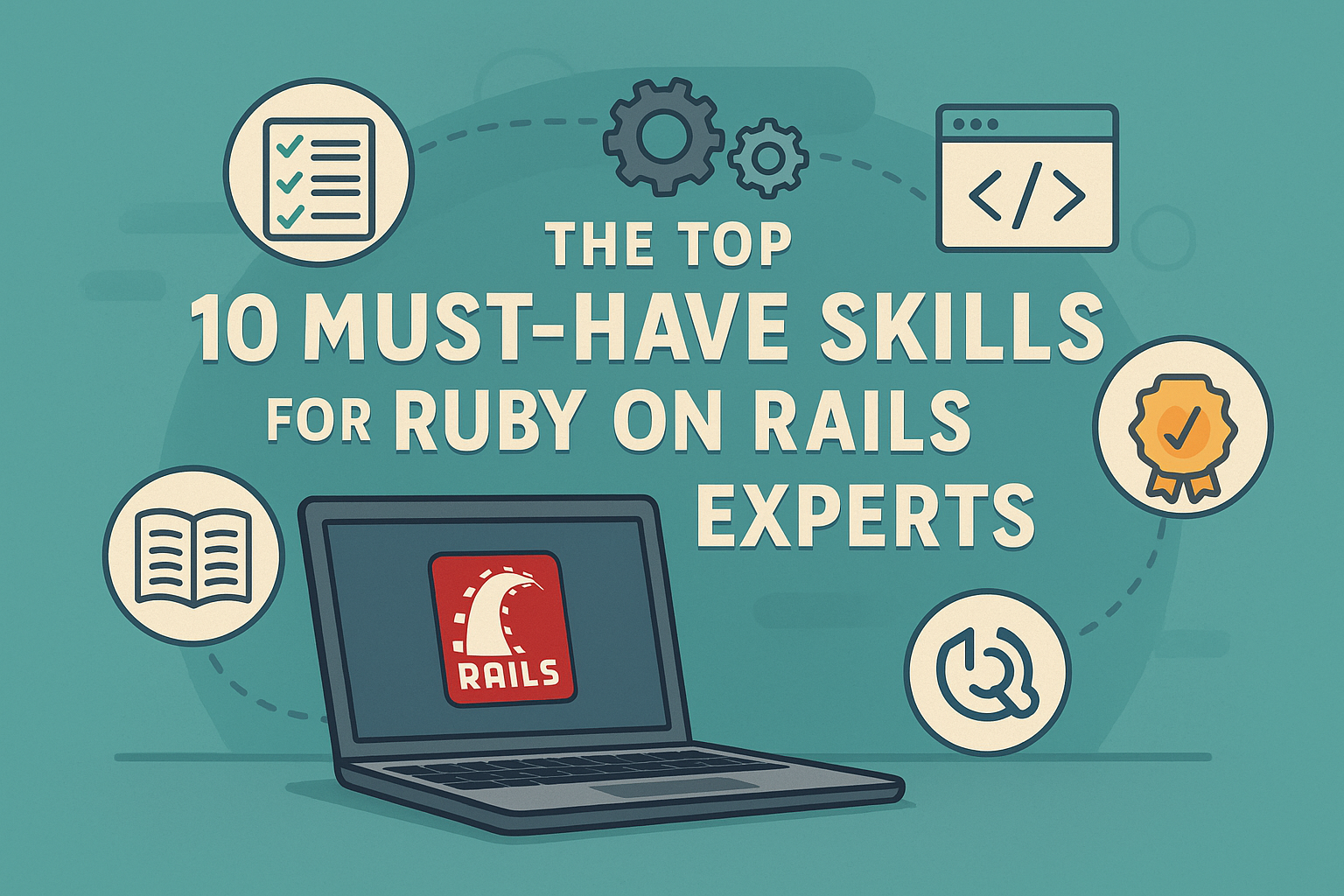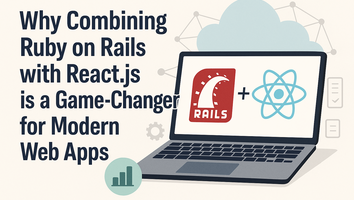Ruby on Rails continues to be a preferred framework for developing scalable and maintainable web applications. For businesses seeking expert guidance, partnering with a skilled Ruby on Rails consulting company or individual experts can make all the difference. But what truly defines a Ruby on Rails expert?
In this article, we explore the top 10 skills every Ruby on Rails expert must have to deliver exceptional consulting services and build robust applications that stand the test of time.
1. Mastery of the Ruby Programming Language
Ruby on Rails is developed using Ruby, a versatile and expressive programming language. A deep understanding of Ruby’s syntax, object-oriented features, and advanced concepts like metaprogramming is essential.
Experts don’t just write code; they craft elegant, maintainable, and efficient Ruby code. This mastery enables them to leverage the framework effectively and customize it when needed.
2. Thorough Knowledge of Rails Framework Architecture
Rails follows the MVC (Model-View-Controller) pattern, but its true power lies in its various components such as ActiveRecord (for database interaction), ActionController, routing, and the asset pipeline.
A Rails expert understands how these parts work together, enabling them to build scalable applications, optimize performance, and solve complex issues.
3. Frontend Integration and UI Skills
Modern web applications require seamless frontend-backend interaction. Ruby on Rails experts today need to be comfortable integrating frontend technologies like React or Vue.js or using Rails’ Hotwire (Turbo + Stimulus) for rich, responsive user experiences.
Expertise in JavaScript, CSS, and responsive design techniques is essential for creating smooth, engaging, and visually refined applications.
4. Database Design and Optimization
Rails applications rely heavily on databases. Designing efficient schemas and writing optimized queries are critical skills.
- Normalizing data without sacrificing performance
- Writing complex queries using ActiveRecord or raw SQL
- Preventing common pitfalls like N+1 query problems
- Using database indexes smartly to improve query speed
This expertise ensures apps run smoothly even as data volume grows.
5. Strong Testing and Quality Assurance Practices
High-quality Rails applications require comprehensive testing. Skilled experts employ testing frameworks such as RSpec and Minitest to thoroughly conduct unit, integration, and system testing.
They also implement Continuous Integration (CI) pipelines to automate testing and maintain code quality throughout development cycles, minimizing bugs and regressions.
6. Performance Optimization and Scalability
An expert knows how to make Rails apps fast and scalable. This includes:
- Profiling code and database queries
- Implementing caching strategies (page, fragment, and low-level caches)
- Delegating resource-intensive tasks to background processing systems
- Using CDNs and asset compression
- Planning for horizontal scaling and load balancing
Optimizing performance keeps users happy and reduces operational costs.
7. Security Best Practices
Web security can’t be an afterthought. Ruby on Rails has many built-in security features, but an expert must know how to properly implement them.
This involves:
- Preventing SQL injection via ActiveRecord safeguards
- Protecting against Cross-Site Scripting (XSS)
- Implementing CSRF protection tokens
- Using proven authentication (e.g., Devise) and authorization (e.g., Pundit) frameworks
- Regularly auditing dependencies for vulnerabilities
Security-conscious coding safeguards data and enhances client trust.
8. Version Control and Collaboration
Modern Rails development is collaborative. Experts are skilled in Git, mastering branching, merging, and pull request workflows to streamline teamwork.
They also embrace code review best practices and integrate Continuous Deployment pipelines, ensuring smoother releases and better code quality.
9. Agile Methodologies and Client Communication
Delivering value in consulting means managing projects effectively. Rails experts must be comfortable with Agile methodologies like Scrum or Kanban, writing clear user stories, and adapting to changing requirements.
Good communication with clients and team members ensures expectations are aligned, and projects stay on track.
10. Continuous Learning and Problem-Solving
The tech landscape evolves constantly. Ruby on Rails is frequently updated with new features and enhancements.
Experts adopt a mindset of continuous learning—following Rails community updates, contributing to open source, and experimenting with emerging tools—to solve problems creatively and keep their skills sharp.
Conclusion
Succeeding as a Ruby on Rails professional or consultant involves much more than writing code. It requires a combination of deep technical skills, strategic thinking, collaboration, and adaptability.
By mastering these 10 skills, you position yourself as a trusted Ruby on Rails expert or establish a reputable Ruby on Rails consulting company capable of delivering scalable, secure, and high-performing applications tailored to client needs.
If you’re looking to elevate your Rails projects, collaborating with experts who possess these skills can turn your vision into reality.



